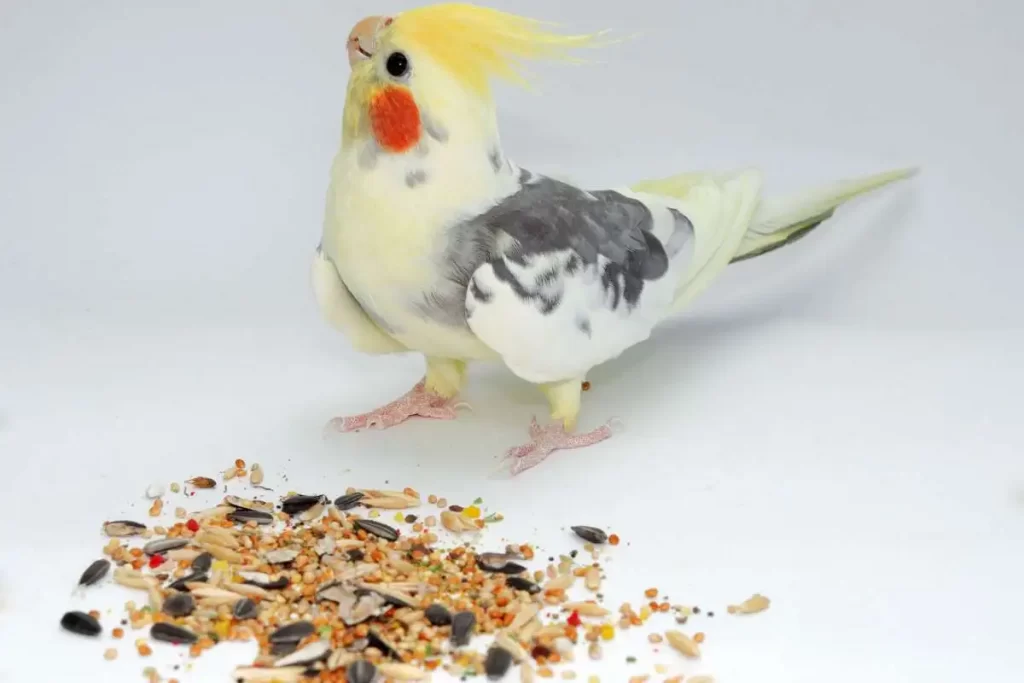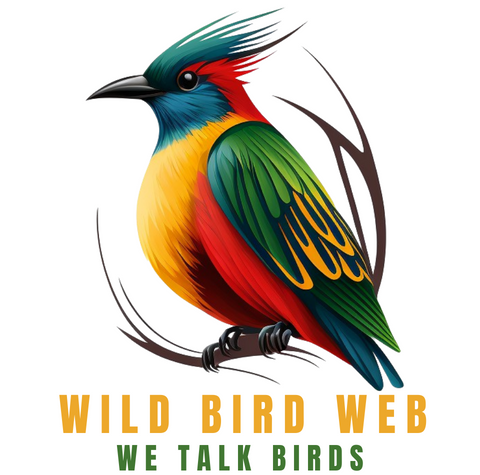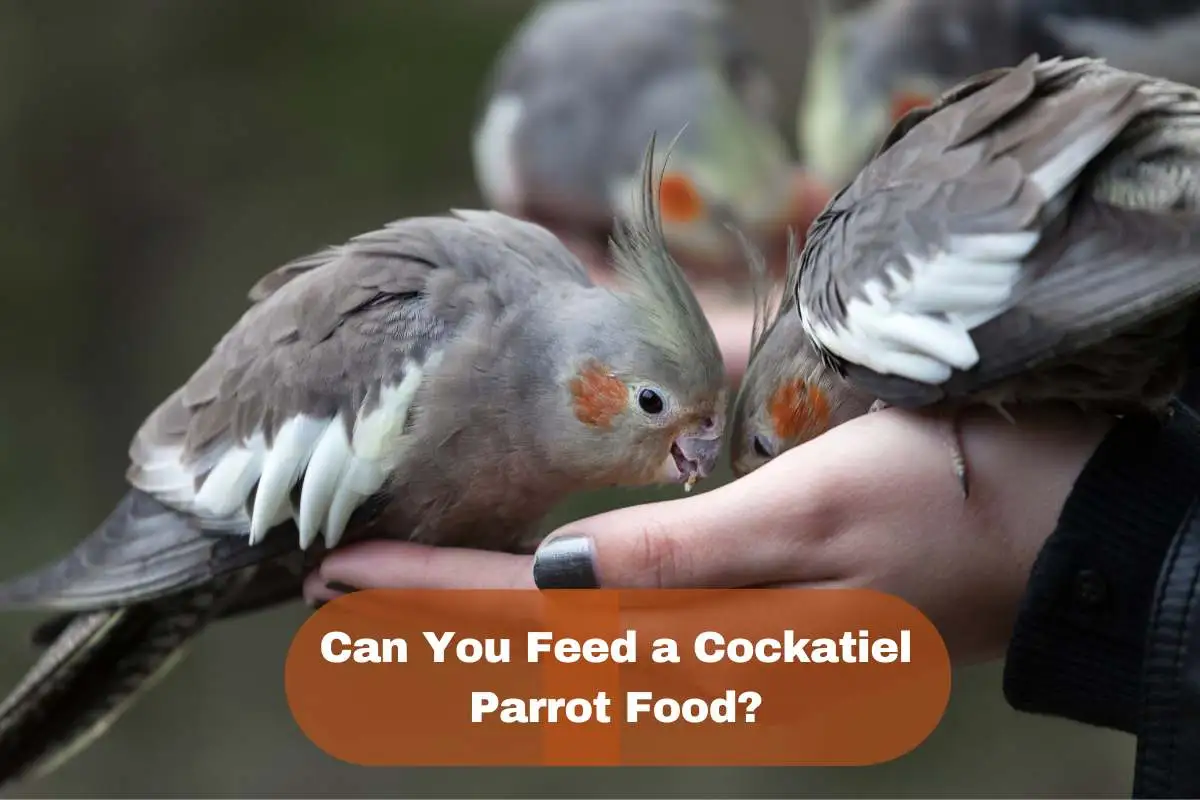It is important to provide a balanced and nutritious diet to keep your cockatiel healthy and happy. One question that many cockatiel owners have is whether or not it is appropriate to feed their cockatiel parrot food.
Can You Feed a Cockatiel Parrot Food? Parrot food can be a safe and nutritious option for cockatiels, but their diet should also include additional ingredients to get the full nutrition required for long-term health. It’s important to select an appropriate parrot food that meets your cockatiel’s specific dietary needs.
If you plan to feed your cockatiel only parrot food, it’s important to select one specifically formulated for cockatiel. Some parrot food can be bigger, which can be difficult for a cockatiel to consume. You can break it into smaller pieces to make it easier for a cockatiel to consume the parrot’s food.
Parrot foods are generally formulated for larger parrots such as macaws or amazons parrots, so the nutritional needs of a small bird like a cockatiel may need to be met.
Additionally, cockatiels require more calcium than other parrot species. So, if you even decide to feed your cockatiel parrot food, you need to feed them occasionally.
Benefits of Feeding Cockatiels Parrot Food
There are several benefits to feeding a cockatiel parrot food as part of their diet. One of the main benefits is that parrot food is specifically formulated to provide the nutrients and vitamins that parrots need to maintain their health. This can be especially beneficial for cockatiels who are picky eaters or may need a varied diet. Parrot food can also be convenient and easy to store, making it a practical option for busy owners.
Risks of Feeding Cockatiels Parrot Food
While parrot food can be a beneficial addition to a cockatiel’s diet, it is also important to be aware of the potential risks. One potential risk is that some parrot foods may contain additives or preservatives that can harm cockatiels.
It is important to choose a high-quality brand of parrot food and to carefully read the ingredient list to ensure that it does not contain any potentially harmful ingredients.
It is also necessary to note that parrot food should not be the only type of food that a cockatiel consumes. A varied diet that includes a mix of seeds, fruits, vegetables, and other types of food can provide a more balanced and complete nutrition profile for your bird.
How Much Parrot Food Should a Cockatiel Eat?

The amount of parrot food that a cockatiel should eat will depend on a variety of factors, including their age, size, and activity level. Generally, feeding adult cockatiels about 1/4 cup of parrot food per day is recommended.
This should be divided into two or three smaller meals and can be offered alongside a mix of other types of food, such as seeds, fruits, and vegetables.
It is important to monitor your cockatiel’s weight and adjust its food intake accordingly to ensure they are healthy. Know more about how much you can feed a cockatiel from our recent article.
Factors to Consider When Choosing a Parrot Food for Cockatiels
When choosing a parrot food for your cockatiel, there are several factors to consider. One of the most important factors is the quality of the food.
Look for a brand that uses high-quality ingredients and does not contain additives or preservatives that could harm your bird. It is also important to choose a food formulated specifically for parrots that meets their nutritional needs.
Additionally, consider the size and shape of the food pieces, as smaller birds like cockatiels may have difficulty eating larger pieces. Finally, think about your cockatiel’s individual preferences and try to choose a food that they will enjoy eating.
Can cockatiels eat regular bird food?
Cockatiels can eat regular bird food, but it is important to choose a high-quality brand formulated specifically for smaller birds like cockatiels.
Regular bird food, also known as seed mix, is typically made up of a blend of seeds and grains suitable for various bird species.
While seed mix can be a convenient and easy way to feed your cockatiel, it is important to note that it may not provide a complete and balanced diet. The seed mix is typically high in fat and may be low in other essential nutrients, such as protein, vitamins, and minerals.
What can I feed my cockatiel besides seeds?
In addition to seeds, there are many other types of food you can feed your cockatiel to provide a varied and balanced diet. Some examples include:
- Pellets: High-quality pellet foods can be a convenient and easy way to provide your cockatiel with a balanced and nutritious diet. Pellets are typically made from a blend of seeds, grains, and other ingredients formulated to meet parrots’ specific nutritional needs.
- Commercial bird food mixes: Many commercial bird food mixes are specifically formulated for cockatiels and other small parrots. These mixes may contain a blend of seeds, grains, nuts, and dried fruits and vegetables. For example, you could try a commercial bird food mix that includes a variety of seeds, dried fruits, and vegetables for your cockatiel to enjoy.
- Homemade bird food: You can also make your bird food at home by mixing various ingredients, such as seeds, grains, nuts, and dried fruits and vegetables. Just be sure to avoid ingredients that are toxic to birds, such as avocados, chocolate, and onions. For example, you could mix a homemade bird food blend using a combination of seeds, nuts, and dried fruits and vegetables that your cockatiel enjoys.
What can I feed my cockatiel if I run out of food?
If you run out of bird food for your cockatiel, you can offer several other foods. These include fresh fruits and vegetables such as apples, carrots, and spinach. You can also provide cooked grains such as quinoa or brown rice. Additionally, cooked eggs can be a great source of protein for your pet.
What can cockatiels not eat?
Following are list of food you should not feed your cockatiel:
| Food | Reason |
| Avocado | Contains persin, which is toxic to birds |
| Chocolate | Contains caffeine and theobromine, which can be toxic to birds |
| Alcohol | Can be toxic to birds and can impair their ability to fly and navigate |
| Onions, garlic, and chives | Contain compounds that can damage a bird’s red blood cells and lead to anemia |
| Salt | Can cause electrolyte imbalances in birds and may lead to dehydration |
| Apple seeds, cherry pits, and other seeds from stone fruits | Contain cyanogenic glycosides, which can release cyanide when ingested |
| Raw beans and peas | Contain toxins that can be harmful to birds |
| Raw potatoes and potato leaves | Contain solanine, a toxic compound that can cause digestive problems in birds |
| Meat | Birds do not have the enzymes necessary to digest meat properly and it can lead to digestive issues |
| Caffeine | Can be toxic to birds and can cause tremors, rapid breathing, and heart palpitations |
What can cockatiels eat as a treat?
Cockatiels love treats, and many foods can be offered as a treat. For example, small pieces of fresh fruit such as apples or bananas can be an excellent choice.
Cooked grains such as quinoa or brown rice are also a great option.
It is important to remember that treats should only make up a small portion of your bird’s diet, as too many treats can lead to the health issue.
Can you feed wild birds cockatiel food?
It is not recommended to feed wild birds cockatiel food. Cockatiels have unique dietary needs that require specialized nutrition, which may be difficult for wild birds to digest. Additionally, certain ingredients, such as nuts and seeds, may damage some wild birds’ digestive systems.
Did I answer everything you need to know about can you feed a cockatiel parrot food?
it is safe to feed cockatiels parrot food. This food provides the birds with a balanced diet that includes essential vitamins and minerals, which are important for their overall health.
Parrot food should be fed in moderation, as too much can lead to nutritional deficiencies or obesity. When choosing a parrot food for cockatiels, be sure to look for one that is specifically formulated for their species and age.

